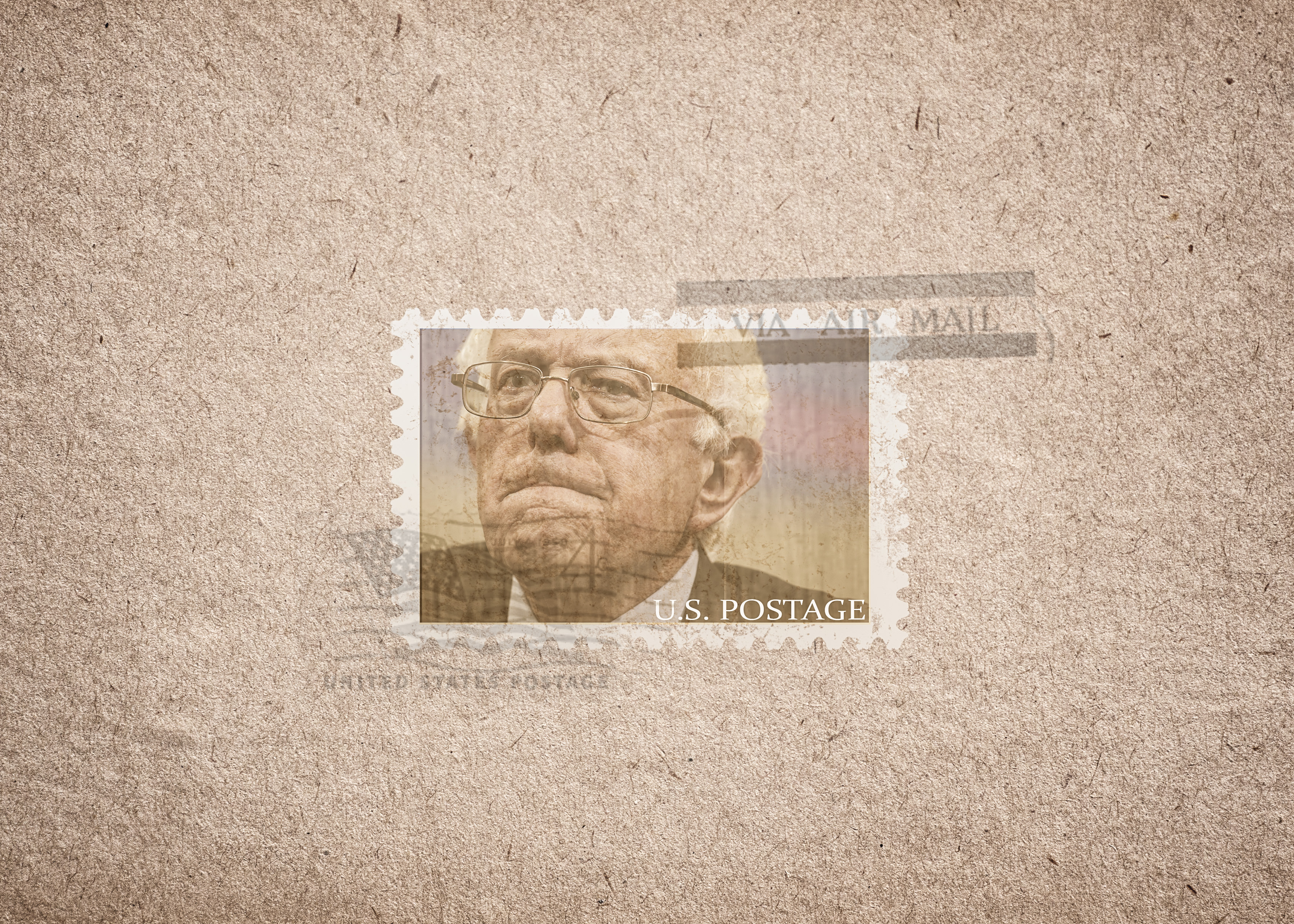Bernie Sanders has a plan to reinvent the post office. Hillary Clinton should steal it.
Why postal banking is a homerun for Democrats


As a longshot candidate facing off in the primary against an opponent everyone still assumes will be the Democratic nominee, Bernie Sanders hasn't gotten a lot of endorsements from prominent politicians or large interest groups. But he got one the other day, from the American Postal Workers Union, which represents over 200,000 workers and retirees. There was really only one reason for it: Sanders' embrace of postal banking. And his position is one Hillary Clinton ought to adopt as her own.
Now before you say, "I am fascinated by postal issues, do tell me more," just put aside your sarcasm and stick with me for a moment, because this is a question that touches on a lot of important issues in our economic, political, and social lives.
What's postal banking, and why should we care about it? Consider the recent disaster that occurred with RushCard, when thousands of users of the prepaid debit cards found it impossible to access their money because of a system failure. It was a reminder that millions of Americans are effectively shut out of the banking system, and have to rely on alternative means for paying bills and making purchases. The typical low-income neighborhood in America has no bank branches, but plenty of check-cashing and payday loan stores, which charge their customers unconscionable rates of interest, rising into the hundreds of percentage points in many cases. They're able to prey on those people because they know the customers have no other options.
The Week
Escape your echo chamber. Get the facts behind the news, plus analysis from multiple perspectives.

Sign up for The Week's Free Newsletters
From our morning news briefing to a weekly Good News Newsletter, get the best of The Week delivered directly to your inbox.
From our morning news briefing to a weekly Good News Newsletter, get the best of The Week delivered directly to your inbox.
But what if you could get some limited financial services — a prepaid debit card, a savings account, a place to pay bills, or even a small loan — from the post office? Post offices in much of the world provide these kinds of services. Our Postal Service already has over 35,000 locations in every corner of the country, so almost no one is too far from one. It already sells money orders. And it can charge reasonable rates to its customers and still turn a profit.
People within the Postal Service have given this idea plenty of thought, and one of the reasons they're so keen on it is that the Postal Service has been in financial trouble of late, and is eager for new sources of revenue. That's partly because people are sending less mail than they used to, but the biggest single reason is that unlike every other government agency and unlike any private business in America, the Postal Service is legally required to pre-pay its retiree health care obligations, setting aside billions of dollars every year for future retirees. Without getting into the controversy over that issue too deeply, it leaves the Postal Service chronically short of funds, so even though they've cut costs and shed thousands of workers in recent years, they still need to find new ways to make money.
If you ask the banks or the payday loan industry, who don't like the idea of competition from the post office, they'll say, "Those dummies can't even deliver the mail, how are they going to provide banking services, ha ha ha!" But even though people like to make jokes about service at the post office, the truth is that they perform a task of mind-boggling complexity with remarkable efficiency, at absurdly low prices. In 2014, they processed and delivered 155 billion pieces of mail, or nearly half a billion items every single day (if you're hungry for more postal data, here's the most recent annual report).
Now think for a moment about what's involved in picking up a letter from your house and getting it all the way across the country to deliver it to somebody else's house, all in the matter of a few days. Think of the people involved, the machinery, the vehicles, everything. If you ask FedEx to do that for you, the absolute cheapest rate you can get will be over $20. The Postal Service does it for 49 cents.
A free daily email with the biggest news stories of the day – and the best features from TheWeek.com
And because they work for us all, they have to deliver everywhere, even in far-flung places where it's exceedingly unprofitable. That's why if you ask FedEx or UPS to deliver a package to North Bumbleflap, Wyoming, they'll take your money and send your package with the Postal Service, because that's a lot cheaper than delivering it themselves. I'm not kidding — that's what they do.
So why not harness the Postal Service's ubiquity and public character to help solve a problem that costs the most vulnerable Americans billions of dollars a year? Up until now, this idea has been advocated mostly by liberals like Sanders (Elizabeth Warren is a big booster), but there's no reason why it couldn't have broad political appeal. If Hillary Clinton wants ideas to help expand economic opportunity for people who are struggling, the fact that tens of millions of Americans can't access banking services is a pretty good place to start.
Paul Waldman is a senior writer with The American Prospect magazine and a blogger for The Washington Post. His writing has appeared in dozens of newspapers, magazines, and web sites, and he is the author or co-author of four books on media and politics.
-
 Nnela Kalu’s historic Turner Prize win
Nnela Kalu’s historic Turner Prize winTalking Point Glasgow-born artist is first person with a learning disability to win Britain’s biggest art prize
-
 Bridget Riley: Learning to See – an ‘invigorating and magical ensemble’
Bridget Riley: Learning to See – an ‘invigorating and magical ensemble’The Week Recommends The English artist’s striking paintings turn ‘concentration into reverie’
-
 ‘Stakeknife’: MI5’s man inside the IRA
‘Stakeknife’: MI5’s man inside the IRAThe Explainer Freddie Scappaticci, implicated in 14 murders and 15 abductions during the Troubles, ‘probably cost more lives than he saved’, investigation claims
-
 Has Zohran Mamdani shown the Democrats how to win again?
Has Zohran Mamdani shown the Democrats how to win again?Today’s Big Question New York City mayoral election touted as victory for left-wing populists but moderate centrist wins elsewhere present more complex path for Democratic Party
-
 Millions turn out for anti-Trump ‘No Kings’ rallies
Millions turn out for anti-Trump ‘No Kings’ ralliesSpeed Read An estimated 7 million people participated, 2 million more than at the first ‘No Kings’ protest in June
-
 Ghislaine Maxwell: angling for a Trump pardon
Ghislaine Maxwell: angling for a Trump pardonTalking Point Convicted sex trafficker's testimony could shed new light on president's links to Jeffrey Epstein
-
 The last words and final moments of 40 presidents
The last words and final moments of 40 presidentsThe Explainer Some are eloquent quotes worthy of the holders of the highest office in the nation, and others... aren't
-
 The JFK files: the truth at last?
The JFK files: the truth at last?In The Spotlight More than 64,000 previously classified documents relating the 1963 assassination of John F. Kennedy have been released by the Trump administration
-
 'Seriously, not literally': how should the world take Donald Trump?
'Seriously, not literally': how should the world take Donald Trump?Today's big question White House rhetoric and reality look likely to become increasingly blurred
-
 Will Trump's 'madman' strategy pay off?
Will Trump's 'madman' strategy pay off?Today's Big Question Incoming US president likes to seem unpredictable but, this time round, world leaders could be wise to his playbook
-
 Democrats vs. Republicans: who are US billionaires backing?
Democrats vs. Republicans: who are US billionaires backing?The Explainer Younger tech titans join 'boys' club throwing money and support' behind President Trump, while older plutocrats quietly rebuke new administration
